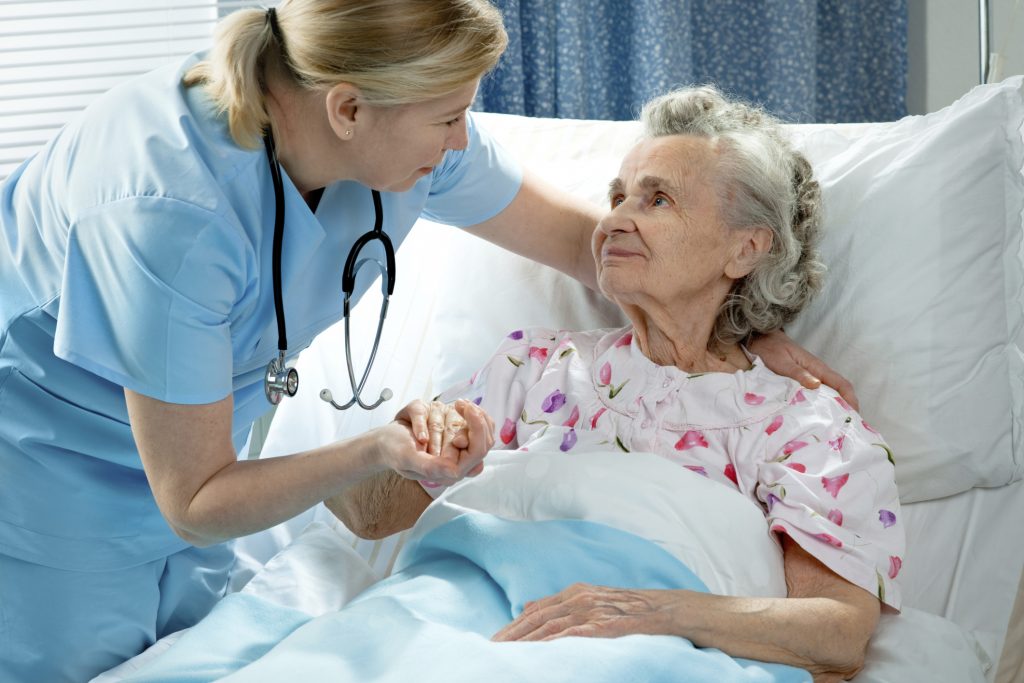
The Similarities Between Nursing and the Law: What Can Law Learn From Nurses?
Many people are surprised when they hear that we are nurses in law school, frequently commenting on how different the nursing profession is from the legal profession and wondering why we made the switch. In fact, nursing spans beyond stereotypical hospital positions and touches on aspects in every area of healthcare. With a broad professional reach and a variety of practice areas, people are often surprised to learn about the significant overlap between the worlds of law and nursing (or health in general). Issues such as consent and capacity, confidentiality, documentation, ethics, research, and health policy are all common issues in the realm of health and nursing that have a legal component. Furthermore, the role of a nurse in many ways is not all that different from that of a lawyer. Nurses are often viewed as being advocates for patients, the healthcare system, and vulnerable populations–analogous to the position of lawyers within our society. Nurses sitting at the core of the healthcare system offer a unique perspective to law. There are few working in health law who are able to see perspectives from both the nursing and legal sides of health-related matters. Nurses have the knowledge and experience to know where there are structural issues in health care, what policies or legislation are needed, and who the key stakeholders may be. This specialist knowledge gleaned from our nursing careers, combined with a legal problem-solving lens, will help to make us more effective lawyers in practice.
We believe that law can actually learn a lot from nursing. As nurses, we are taught to be forward thinkers and to implement preventative measures. In contrast, the law is always looking backwards. However, courts are often in a unique position to be progressive on various societal policy issues. If courts were to implement this same forward-thinking lens, many policy issues may be more clearly defined at an earlier stage. Further, nursing is ranked among the most trusted health professions (https://www.cna-aiic.ca/en/about-cna/our-members). The elements of trust and caring are transferrable to client relations in legal practice.
Client relations in the legal profession are similar to the patient-nurse relationship. Many might think of bedside or frontline nursing as a profession that is focused on providing only tangible medical care, such as checking wounds, vital signs, or drawing blood. However, at the core of nursing lies the nurse-client relationship. The foundation of a caring relationship is trust. Nurses work with their patients to establish trust and work from a patient-centred perspective where empathy is the focus. The goal is to achieve an understanding of the patient’s position and needs so that they can be cared for accordingly. Legal professionals can also implement empathy and understanding as the core and foundation of the lawyer-client relationship. Many clients seek legal help during the most difficult times in their lives; for instance, divorce or criminal proceedings, consent and capacity issues related to themselves or a loved one, employment issues, or bankruptcy proceedings. It is imperative for clients to feel supported through empathetic relationships with their lawyers and other service providers as they work within a judicial system that is often the opposite, feeling substantially adversarial, impersonal, and punitive.
These invaluable soft skills might not be valued as highly in the legal profession. However, even in a corporate setting, lawyers who prioritize the lawyer-client relationship and work to both identify and meet clients’ needs are an asset that can forge strong and lasting relationships with clients. In our experience as nurses, it is often difficult for employers in the legal profession to appreciate the importance of these transferable skills that nurses can contribute to the law. It is our position that these relationship-building skills, along with the exceptional assessment and case management skills that nurses are trained to apply daily on the job, are valuable in the legal world. Nurses are trained to spot inconsistencies and patterns and are able to manage multiple tasks as they manage heavy caseloads of clients with complex needs. Whether it is working with a patient in the hospital who is recovering from a severe stroke, or a client in the community who is living in poverty with a mental illness, nurses are versatile professionals who have a plethora of skills valuable to the legal profession.

Nurses are also equipped to provide holistic care, viewing issues from a holistic and structural perspective. Nurses are able to understand how patients’ issues are affected by, and often directly related to, policy and legislation. Nurses are keenly aware of the social determinants of health, including poverty, education, housing, income, race, and gender and the ways in which these determinants, among others, affect patients’ health and well-being. Similarly, the social determinants of health also play a major role in clients’ access to justice. Furthermore, the ability to understand how policy and legislation affect all clients in all realms of legal practice is a valuable skill. The ability to view a client or a file in a holistic and client-centred manner make nurses assets to the legal profession.
It is our hope that this article raises awareness of links, overlaps, and commonalities between nursing and the law. We also hope our perspective helps both professionals, students, and the legal profession gain an understanding about what other professions can bring to legal practice. Remaining open to other perspectives and experiences can help further develop the law and ensure a client-centred perspective that meets the growing and evolving needs of clients, communities, and our country.
This article was written by Nicole Bennewies and Sarah Katz. Nicole Bennewies is a Registered Nurse and a former Emergency Nurse and holds a Master of Nursing from Ryerson University. Sarah Katz is Registered Nurse and a former Public Health Nurse and holds a Master of Health Science in Bioethics from the University of Toronto.
This article is part of the Osgoode Health Law Association’s Perspectives in Health column. Keep up to date with the HLA on Facebook (Osgoode Health Law Association, Osgoode Health Law Association Forum) and Twitter (@OsgoodeHLA).
If you would like to write with the Osgoode HLA, please contact Adrienne Shnier (AdrienneShnier2016@osgoode.yorku.ca).
